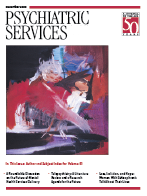The Therapeutic Alliance is the ninth monograph in the Workshop Series of the American Psychoanalytic Association. In introducing the essays in this small volume, Steven Levy points out that psychoanalysis has struggled from the outset with how the relationship with the doctor was to help the patient. Freud explicitly denounced suggestion, and he introduced the principles of anonymity, neutrality, and abstinence to ensure that the analyst's role was primarily one of interpretation. Taken to extremes, however, an approach characterized by surgical coldness turns the living patient into a cadaver, an object of scientific study.
Current attitudes toward the clinical construct of the therapeutic alliance provide an arena in which the tension between the benefits of the positive transference and the risks of suggestion may be examined. The contributors to this volume, most of them using apt and engaging clinical illustrations, keep this discussion grounded in the practice of psychoanalysis.
Sander Abend puts his finger directly on the problem when he points out that the very concept of therapeutic alliance involves contradiction—namely, the expectation that the patient is motivated to be rational about his or her own irrationality.
Theodore Jacobs notes that when a patient in the midst of a negative transference interrupts her tirade to say "gesundheit," he feels reassured that the therapeutic alliance is present. He believes that the therapeutic alliance is a useful grounding point from which to orient oneself, particularly in the opening and end phases of analysis.
Axel Hoffer suggests that analysts need to stay neutral to their patients' wishes and fears, neither approving nor disapproving of them. He feels that such neutrality is central to the deepening of the analysis, which is its primary goal. The analyst is seeking, in Ferenzi's terms, the "mental nakedness" of the patient. For Hoffer, the therapeutic alliance exaggerates the split between the observing ego and the experiencing ego, thus interfering with free association and deepening of the analysis, and is therefore an unnecessary concept.
Judith Chused, in contrast to Hoffer, points out that patients, whether children or adults, need to experience the analyst as responding authentically, demanding neither compliance nor intellectualization, before they reveal their inner being. The analyst gives the patient a sense of being known and accepted. Chused also explains how when working with children, a working alliance with the parents is central as well.
Owen Renick approaches the therapeutic alliance from the vantage point of the two-person intersubjective perspective. He finds that the concept of therapeutic alliance interferes with the primacy of transference and resistance as the key elements needing attention from analyst and analysand. For him the therapeutic alliance obscures the unitary perspective of understanding the coauthored analytic situation.
The Therapeutic Alliance adeptly addresses contemporary tension between theoretical elusiveness and practical usefulness of the therapeutic alliance. It is well suited for those interested in psychoanalytic psychotherapy as well as for psychoanalysts.

